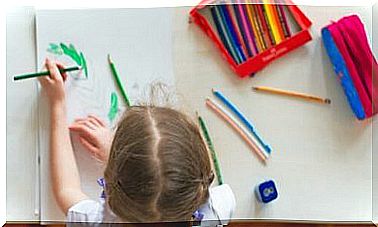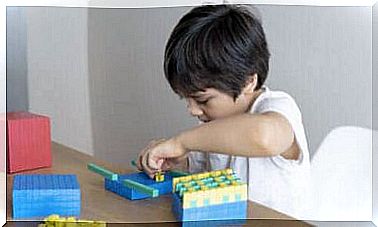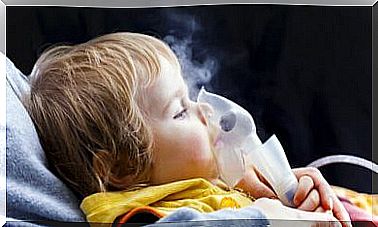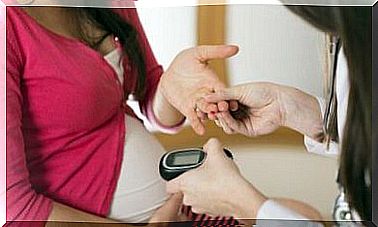7 Tips To Avoid Aggression In Children

There are many ways to avoid aggression in children. But the key to all of them is to know what constitutes aggressive behavior, and why parents must never lose control in the face of an outburst of rage or their children’s anger.
Much more than just an expression of anger, aggression in children can be a sign of underlying frustration, fear or sadness . As parents, we should be aware of our children’s emotional needs and provide them with the healthy and supportive environment they need to grow and thrive.
To determine if your child is aggressive, observe her behavior. For example, if your child is deliberately trying to cause physical or mental harm to other children, or even to his own parents, it is aggression.
To identify patterns of aggressive behavior in children, remember that any intentionally violent act is a sign of a problem that requires attention. This includes kicks, bites, pinches, screams and ugly language.
There are many ways to help a child deal with his aggressive behavior. Here are seven tips to avoid aggression in children:
7 tips for channeling aggression in children
1. Build a trusting atmosphere
Try to keep channels open for communication with your child. Build an atmosphere of trust and respect at home. In this way, your child will have enough security to express their feelings freely without fear of criticism or punishment.
This familiar and soothing environment will allow your child to lighten their heart and ventilate their emotions. Feeling really understood and heard in the comfort of your own home helps your child leave his aggressive behaviors behind.
If your child begins to express their feelings, take the opportunity to explain that it is perfectly normal to get annoyed or feel angry at times. Also point out that violence does not solve any problems.

2. Find the source of their aggression
To get rid of aggression in children, start by studying how your little one is behaving.
The idea here is to identify the causes of your child’s aggressive behavior. You may be surprised at what you discover. A common cause of aggression in children is low self-esteem.
You may also find that children react to the arrival of a little brother or sister. They feel forgotten and not taken care of, and they can try to get your attention in any way they can – especially the bad ones.
Act quickly to deal with aggressive behavior
When aggression in children affects their environment, especially other children, you need to intervene immediately. At this point, you need to reach your child. Otherwise, its aggressive behavior may lead to it being rejected by its peers in the future.
Helping your child channel his emotions in a healthy way will allow him to exchange violence for more rational behaviors. Do not underestimate your child: do not wait for the problem to get worse because it only makes it harder to take action.
Intervene as soon as you see that your child becomes frustrated or angry. If you notice that one of your children is hitting or biting their siblings, other children or even an adult, stop the behavior immediately. Stop your child and let him see that it does not help.
4. Find a way to make success a part of every day
We all know the power that words have over us. A kind word can build trust, just as a mean comment can undermine it. Imagine what those who bring up their children with emotional intelligence can do for their future prospects.
By addressing aggression in children, you can reinforce their positive values. Teach your children to express their feelings appropriately. Praise them for their achievements. Make them feel successful.
A good way to do this is to praise your children for the efforts they have made and the results they have achieved. When your children make the bed in the morning, tell them what a good job they have done.
Let them know that you appreciate their work. If there is something you need to correct, take the opportunity to do so after praising their hard work. This way, your child will be more receptive to your feedback.
5. Be a role model for your child
Parents should never be aggressive towards their children. If you yell at your child, he is less likely to understand what you want to say.
Screams or harsh words will only make the children defensive. Worst of all, when children grow up in such an environment, they learn that this is the right way to express themselves.
If children see their parents screaming instead of talking, and if all discussions end with someone banging their fists on the table or storming out, that’s exactly what they will imitate in the future when they lose patience.
For this reason, it is important to be a role model as a parent to make your expectations of your child very clear.

6. Stay calm before aggressive outbursts
When your child is aggressive towards a family member or friend, stop her and separate her from that person. A little time alone will help the child reflect on what he has done.
If your child is violent towards you, as a parent, leave him alone. Keep in mind that this is an explosion of pent-up emotions. Reasoning with him will not help until he has calmed down.
When the moment has passed, talk to the child and explain that his behavior was not acceptable. Give it time in its room to reflect in solitude. If consequences or penalties are necessary, put them into action as soon as possible.
7. See a specialist if you need help
If you have applied these recommendations and your child is still behaving aggressively, it is time to talk to a pediatrician or another specialist. They will be able to identify the cause of the aggressive behavior and help your family deal with it.









